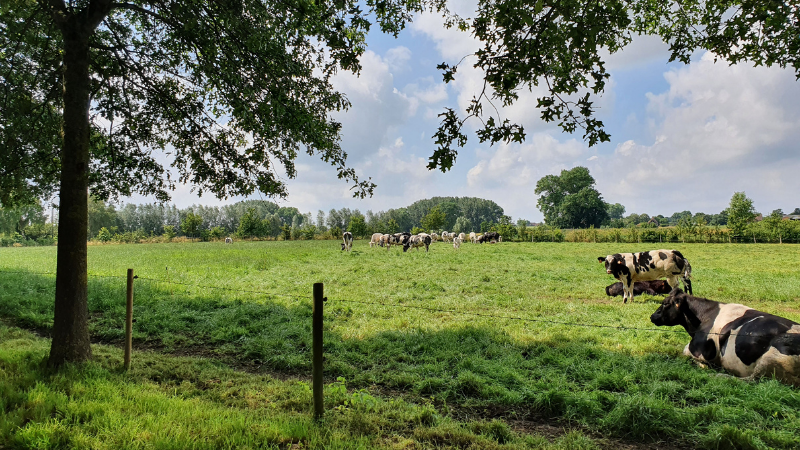by Boerenbond, Belgian Farmers Union
Description
For several years now and more frequently, farmers in Flanders (Belgium) have been faced with extreme weather conditions such as drought or extreme humidity. This affects harvests and increases risks on the farm level.
In addition, COVID-19 has had a direct effect on the income of a number of farms, making the fight against climate change more complicated as it can be expensive.
Climate change causes more unpredictable weather conditions with sometimes negative consequences for yields and higher risks for farmers. Initiatives taken in response of climate change have seen in 2021 Boerenbond become a partner in the CO2 Claire platform, the first Flemish platform where carbon storage on agricultural land will be exploited by local companies who want to reduce their impact on the climate. In this way, carbon farming is promoted and enhanced. A similar practice, promoted by the non-profit association Boerennatuur (Farmers Nature, which is supported by Boerenbond), aimed at increasing carbon storage in agricultural land, involves processing wood chips in agricultural soil. Likewise, it is important to a farmer that all the efforts he or she has made to improve carbon storage are actually financially compensated.
Results
- Different weather conditions and increased risks raised awareness about the importance of good soil quality. More farmers are looking how to improve the soil organic matter and carbon content of the soil.
- Adoption of practices that improve soil health increase carbon storage in agricultural soils, contributing to climate mitigation and adaptation.
- Climate mitigation helps to preserve harvests and the income of the farmers.
Climate smartness*
Joint initiatives among farmers and local actors facilitate the implementation of innovative actions to tackle climate change. It is estimated that 80% of carbon sinks in terrestrial ecosystems is present and the soil, being after the oceans one of the largest carbon pools. Therefore, putting in practice offsetting schemes that contribute to carbon capture and storage in the soil, bring positive effects not only in mitigation, but also in adaptation. This, given that soil organic matter in soil enhance its physical structure, including porosity, hence increasing its capacity to retain water under drought conditions and facilitate the infiltration under water excess situations, hence reducing the potential negative impacts to crops. Additionally, in the medium- to long-term, organic matter content can improve the chemical and biological properties of the soil, resulting in greater soil fertility and health thereby can maintain or increase crop yields. Planting trees in plot or farm perimeter has synergistic effects in soil fertility and increase carbon capture potential, contributing to expand the scope of the goals in the partnership with CO2 Clair platform.
*This is done in the framework of climate-smart agriculture (CSA) approach. Climate-smartness in agriculture means understanding impacts of climate change and variability along with the agricultural activity, which includes the planning of what crop to plant, when to plant, what variety to plant and what type of management practices are needed to reduce the impact on the environment (e.g. emissions reduction), maintain or increase productivity (e.g. yields) while increasing resilience and improving livelihoods.


